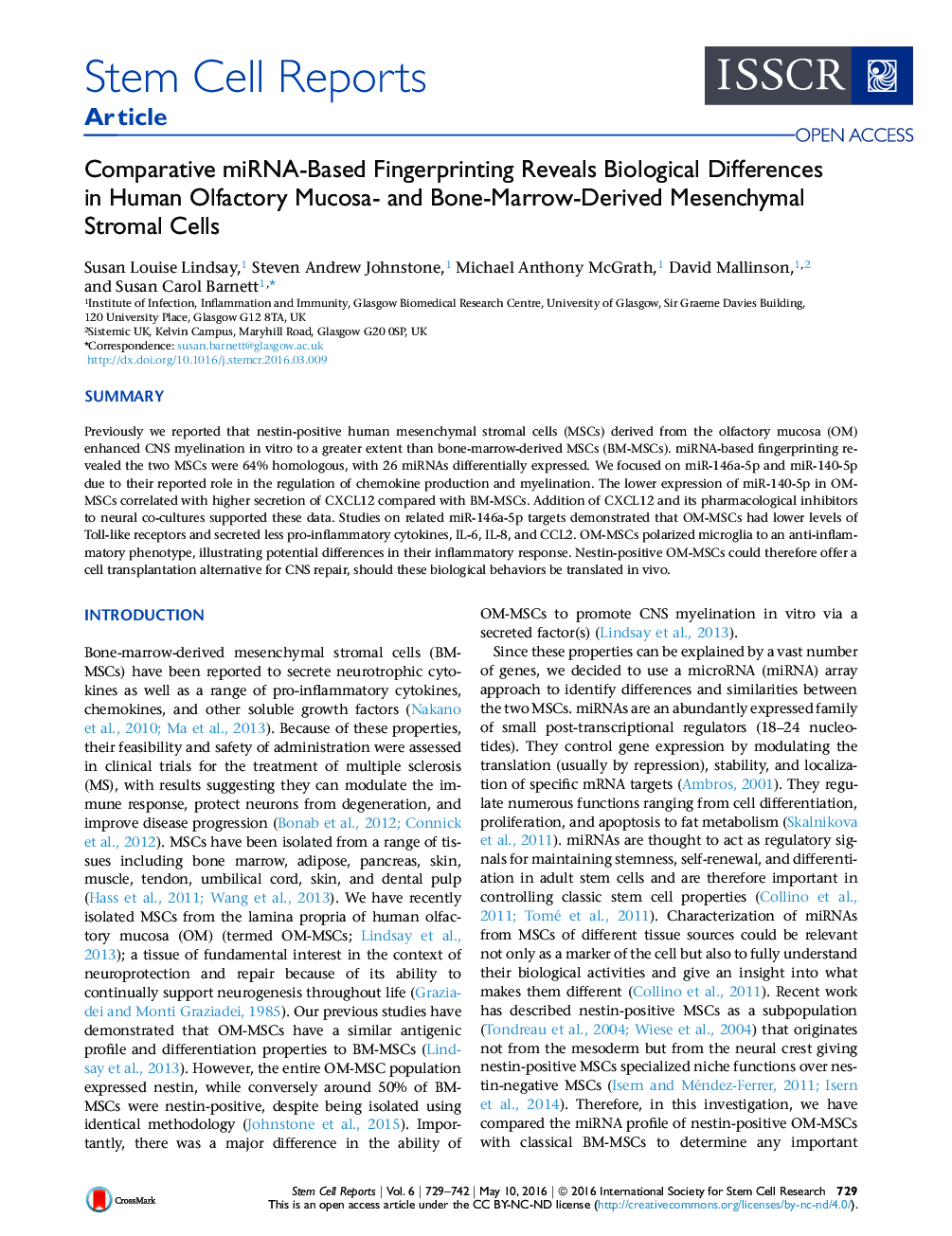| Article ID | Journal | Published Year | Pages | File Type |
|---|---|---|---|---|
| 2093231 | Stem Cell Reports | 2016 | 14 Pages |
•OM-MSCs share 64% miRNA homology to BM-MSCs and differentially express 26 miRNAs•CXCL12 promotes CNS myelination and is negatively regulated by miR-140-5p in BM-MSCs•miR-146a-5p negatively regulates IL-6, IL-8, TLR2, and TLR4 on OM-MSCs•These properties make OM-MSCs a suitable candidate for transplant-mediated CNS repair
SummaryPreviously we reported that nestin-positive human mesenchymal stromal cells (MSCs) derived from the olfactory mucosa (OM) enhanced CNS myelination in vitro to a greater extent than bone-marrow-derived MSCs (BM-MSCs). miRNA-based fingerprinting revealed the two MSCs were 64% homologous, with 26 miRNAs differentially expressed. We focused on miR-146a-5p and miR-140-5p due to their reported role in the regulation of chemokine production and myelination. The lower expression of miR-140-5p in OM-MSCs correlated with higher secretion of CXCL12 compared with BM-MSCs. Addition of CXCL12 and its pharmacological inhibitors to neural co-cultures supported these data. Studies on related miR-146a-5p targets demonstrated that OM-MSCs had lower levels of Toll-like receptors and secreted less pro-inflammatory cytokines, IL-6, IL-8, and CCL2. OM-MSCs polarized microglia to an anti-inflammatory phenotype, illustrating potential differences in their inflammatory response. Nestin-positive OM-MSCs could therefore offer a cell transplantation alternative for CNS repair, should these biological behaviors be translated in vivo.
Graphical AbstractFigure optionsDownload full-size imageDownload as PowerPoint slide
